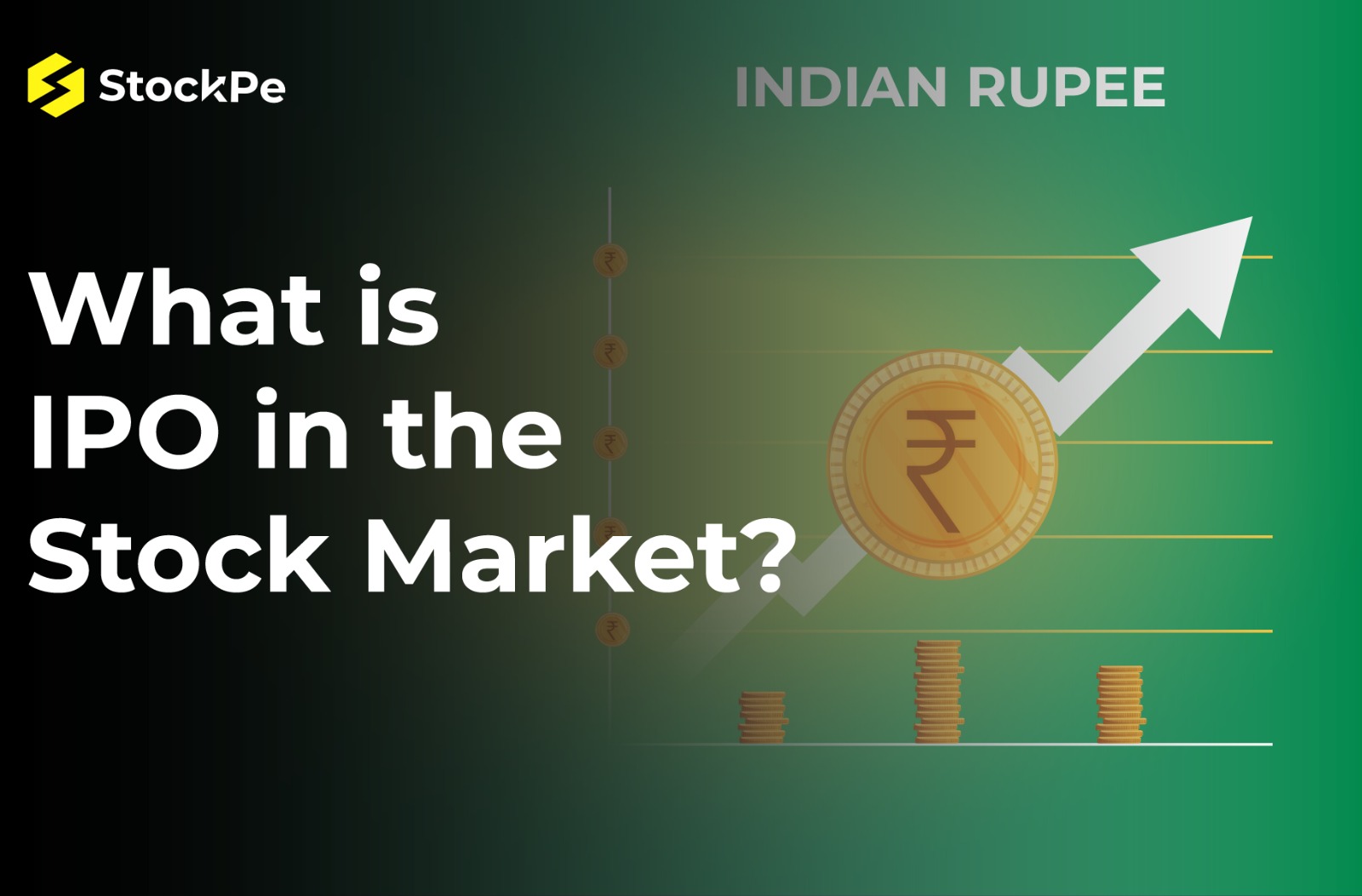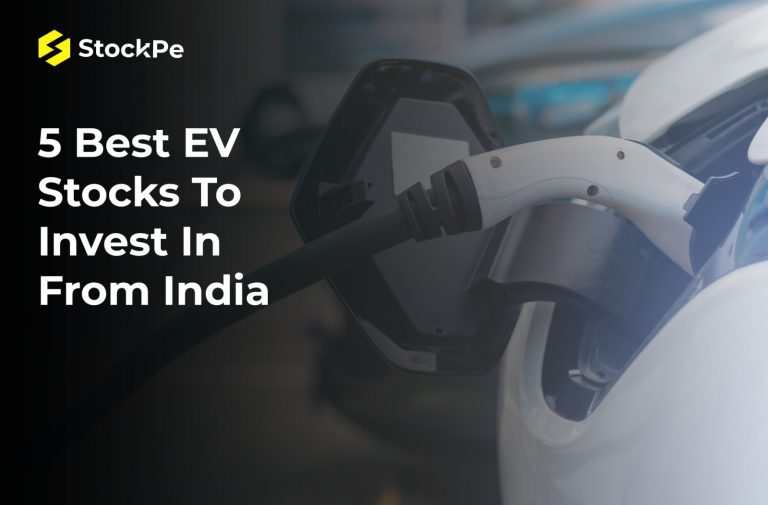What is IPO to a Retail Investor:
When a private company announces that it is planning to list its shares for the first time in the stock market, Retail Investors book for the IPO in the secondary market to get an allotment. If you are lucky, you will get an IPO allotted.

Types of Investors:
Angel Investors:
Smart Money Investors who invest just before an IPO – Pre-IPO and have a lock-in period of 1 year before which they can’t sell their stocks.
If Angel Investors are exiting a stock, take notice!
Early Investors:
Private Investors who have been with the Stock for a long time.
If Early Investors are exiting a stock, this signals an update. But the nature of the update is not clear.
Founder:
If the Founder is exiting the stock, Red Alert!!
IPO Investors on Listing:
These are investors that try to make the most money on the listing day when the stock price is pumped up. But no one can know for sure, how the market will react on listing day and how the stock price will respond.
Heads or Tails?
IPO Investors:
Retail Investors who invest in the IPO after the IPO is launched.
Post-IPO Investors:
Investors who invest in the stock after the IPO has run its course.
LPs and VCs:
Investors in the Startup will benefit from the capital raised from the IPO.
Due Diligence:
Just as with all other stocks, do thorough research on the company’s fundamentals, technical charts, the company’s financials, and management. growth plan, investment, sales growth, and corporate action.
The stock market is a dynamic platform that allows companies to raise capital by selling shares of their company to interested investors.
An initial public offering (IPO) is a significant milestone for any company looking to go public.
An IPO is the first time that a private company decides to sell its shares to the public, allowing interested investors to invest in the company.
In this article, we will explore what an IPO is, how it works, and what investors need to know before investing in an IPO.
What is an IPO in Stock Market?
An initial public offering (IPO) is a process where a private company decides to sell its shares to the public, which makes the company a public company. An IPO is the first time that a private company decides to sell its shares to the public, allowing interested investors to invest in the company. The shares are listed on a stock exchange, and they start trading. Once the shares are trading, they can be freely traded in the open market by public investors.
When a company decides to go public, it typically hires investment banks to underwrite the IPO. Investment banks help the company determine the number of shares to sell, the price range, and the timing of the IPO. Investment banks also help the company prepare the necessary documents required for an IPO, such as the prospectus, which contains information about the company’s business, financials, and risks.
An IPO is a significant milestone for any company looking to go public. The process of an IPO can take several months, and it involves several steps. The first step in the IPO process is to hire investment banks to underwrite the IPO. The investment banks help the company determine the number of shares to sell, the price range, and the timing of the IPO. The investment banks also help the company prepare the necessary documents required for an IPO, such as the prospectus.
Once the IPO is launched, interested investors can place orders for the shares through their brokers. The IPO shares are typically sold at a fixed price offer, which means that all the shares are sold at the same price. However, the price of the shares can be within a price band, which means that the shares can be sold within a range of prices.
How Should you Invest in an IPO?
Company’s Business Model and Financials
Investors should understand the company’s business model and financials before investing in an IPO. Investors should read the prospectus, which contains information about the company’s business, financials, and risks. The prospectus provides a detailed analysis of the company’s operations, financials, and risks.
Company’s Management Team
Investors should also understand the company’s management team. Investors should research the company’s management team to ensure that they have the necessary experience and expertise to run the company.
Valuation
Investors should understand the company’s valuation before investing in an IPO. The company’s valuation can impact the stock price, and investors should ensure that the company’s valuation is reasonable.
Market Conditions
Investors should also consider the market conditions before investing in an IPO. The stock market can be volatile, and investors should consider the current market conditions before investing in an IPO.
Lock-Up Period
Investors should also consider the lock-up period before investing in an IPO. The lock-up period is a period of time where insiders, such as founders and employees, are prohibited from selling their shares. The lock-up period can impact the stock price, and investors should be aware of the lock-up period before investing in an IPO.
Allocation Process
Investors should also consider the allocation process before investing in an IPO. The allocation process can be complex, and it typically favors institutional investors over individual investors.
Benefits of Investing in an IPO
Investing in an IPO can be beneficial for investors. Here are some benefits of investing in an IPO:
Potential for High Returns
Investing in an IPO can provide investors with the potential for high returns. If the company performs well, the stock price can increase, which can result in significant gains for investors.
Early Access to Promising Companies
Investing in an IPO provides investors with early access to promising companies. Investing in an IPO can give investors the opportunity to invest in a company before it becomes widely known.
Fixed price offering:
In India, most IPOs are fixed-price offerings, which means that the price is set in advance. This can be an advantage for investors, as they know exactly what they will pay for the shares.
High demand: In recent years, there has been a high demand for IPOs in India. This can lead to oversubscription of the IPO, which means that there are more interested investors than there are shares available. This can drive up the price of the shares, leading to potential gains for early investors.
Diversification
Investing in an IPO can provide investors with diversification. Investing in an IPO can allow investors to diversify their portfolios and reduce their overall risk.
Liquidity
Once the shares are listed on a stock exchange, they can be freely traded in the open market. This means that investors can buy and sell shares in the company easily and quickly, providing liquidity to the investment.
Cons:
High risk:
Investing in an IPO is inherently risky, as the company has no track record in the public markets. There is no guarantee that the company will perform as expected, and the stock price may decline significantly.
Limited information:
In many cases, investors have limited information about the company prior to the IPO. This can make it difficult to make an informed investment decision.
Lock-up period:
Insiders, such as founders and employees, are often subject to a lock-up period after the IPO. This means that they are prohibited from selling their shares for a certain period of time, which can limit the supply of shares available for trading and impact the liquidity of the investment.
Volatility:
IPOs can be highly volatile, with the stock price fluctuating significantly in the early days of trading. This can make it difficult for investors to determine the true value of the company and make informed investment decisions.
High fees:
Investment banks and other intermediaries often charge high fees for underwriting an IPO. These fees can eat into the potential returns for investors.
While there is the potential for significant returns, investors should be aware of the risks and limitations of investing in a company that has no track record in the public markets.
Before investing in an IPO, it is important to conduct thorough research on the company and the industry, as well as to consider the potential risks and benefits of the investment.
It is also important to have a long-term investment horizon and to be prepared to weather the volatility that often accompanies new listings.
How Do Companies Launch an IPO?
The process of an IPO can take several months, and it involves several steps. Here is a step-by-step guide on how an IPO works:
Step 1: Hire Investment Banks
The first step in the IPO process is to hire investment banks to underwrite the IPO. The investment banks help the company determine the number of shares to sell, the price range, and the timing of the IPO. The investment banks also help the company prepare the necessary documents required for an IPO, such as the prospectus.
Step 2: File Registration Statement
The company must file a registration statement with the Securities and Exchange Commission (SEC) before it can sell shares to the public. The registration statement contains information about the company’s business, financials, and risks. The SEC reviews the registration statement and provides comments to the company, which the company must address before the IPO can proceed.
Step 3: Price the IPO
After the registration statement is filed with the SEC, the investment banks work with the company to determine the price of the shares. The price can be within a price band, which means that the shares can be sold within a range of prices. The price band is typically set a few weeks before the IPO is launched.
Step 4: Launch the IPO
Once the price is determined, the IPO is launched, and interested investors can place orders for the shares through their brokers. The IPO shares are typically sold at a fixed price offer, which means that all the shares are sold at the same price.
Step 5: Allocate the Shares
After the IPO is closed, the investment banks allocate the shares to their clients. The allocation process can be complex, and it typically favors institutional investors over individual investors.
Step 6: Start Trading
After the shares are allocated, the shares are listed on a stock exchange, and they start trading. Once the shares are trading, they can be freely traded in the open market by public investors.
Before investing in an IPO, it is essential to understand the risks involved. Investing in an IPO can be exciting, but it can also be risky. Here are some things that investors need to know before investing in an IPO:
We conclude that it is essential to do the due diligence on the company and research well before investing in any IPO. Look for Red Flags like “Adjusted Returns” or “Relative Valuation”! If the Fundamentals of the Stock are good, you are good to go.





